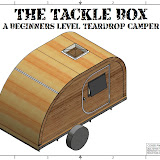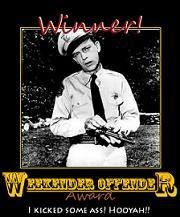I haven't had any time this week to come up with a new blog post, so I thought I would post this oldie from an old blog of mine called What Andy Really Thinks. I was reminded of this after recently reading the Snopes.com answer to a reader's question. By the way, the Snopes people got it wrong because they refered to the coins as possessions and not as a representation of wealth in the US treasury.
When asked what I thought about the most recent efforts to eliminate the penny from American currency I thought:
Good deal, because a penny saved is no longer a penny earned.
The US treasury estimates that by the end of the 2006 fiscal year it will cost 1 and 23/100 cents to manufacture a 1 cent coin. If the coin can only represent 1 cent from the treasury, then the other 23/100 of a cent ends up being lost. So a penny saved is really only 81/100 of a penny earned. It’s kind of a rip-off when you think about.
What do we really save from eliminating the penny? We would save 23 cents on every 1 dollar roll. If the treasury makes 10 billion (10,000,000,000) pennies per year (they actually make more), which is 100 million (100,000,000) 1 dollar rolls, then we would save $23 million ($23,000,000) per year. Just for the record, a similar thing is true for the nickel. We can save 73/100 cents for each of the 1 billion nickels eliminated.
In 1994, I opened a checking account from a national bank that included this new thing called a ‘check card’. Interested in having immediate access to my money at the point of purchase where previously I had to first obtain cash from a teller or ATM, I jumped on this new technology. Unfortunately, this required that I have a driver’s license style picture taken for the front of it. This wouldn’t have been a problem except that this relatively early Saturday morning was preceded by a very late and alcohol filled Friday night. The only way the bank will retake the picture is if I close the account and reopen a new one. So, 12 years later, there is still a funny picture of a very hung over me on the front of this card. The good news is. (1) I always have enough money from my account on my body and person to buy something. (2) Lose cash, and it’s essentially gone, but lose the card and no one else can use it and the bank replaces it. And (3) the neighborhood ice cream truck is about the only place that I can’t use it.
Years ago I would refer to this card as if I was the only one in the world advanced enough to have one, but now I can’t do that because almost everyone has one. For most of the country, cash has become mostly obsolete. It is entirely possible to eliminate all coinage lesser than a quarter from American currency because most transactions that can in no way be made in any other form than cash are conducted in amounts rounded to a quarter. Girl Scouts, school fundraisers, the paper boy, and the aforementioned ice cream man are prime examples.
On the other side of the coin, so to speak, I think we can also eliminate all currency greater than the 10 dollar bill. This may sound crazy, but think about it, what are you gonna buy for more than 20 dollars that can’t be purchased with a card? Drugs? If the police find the guy with all of the ten dollar bills, then they found the drug dealer. But, more importantly, the treasury recently reported that American currency is being counterfeited at a record rate. Nobody is sure exactly how much money is “stolen” from the US Treasury via counterfeit money every year, but the Secret Service estimates it to be in the hundreds of millions. So, if nobody accepts 20’s, 50’s or 100’s, then the counterfeiters can make as many of these bills as they want without hurting the economy because they just aren’t gonna be able use them anyway.
.
Even though this is much more possible than people realize, I don’t see cash being “counted out” anytime soon.
Blogs Endorsed By Andy's WWW
- Urf - From See Mike Draw
- Mildred Ratched
- Gringa N Mexico
- Dorky Dad
- The Offended Blogger
- The Road Lester Traveled
- See Mike Draw
- St. Vodka of the Martini
- Hollands Comet
- Prefers her fantasy life
- 15 Minute Lunch
- Blog it like you mean it sister!
- Guilty with an Explanation
- Slick and Chuck's Advice Site
- Rock House Blog
- Mattress Police
- Sheff
- A Funny Thing
Friday, February 8, 2008
Subscribe to:
Post Comments (Atom)



















No comments:
Post a Comment